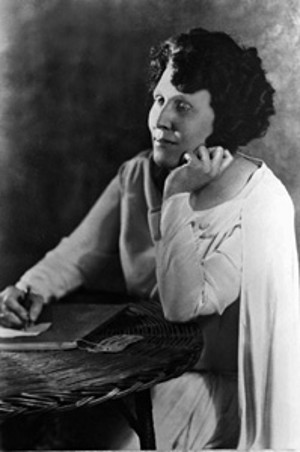Chapter VI
Modernism in Action
In college I became deeply interested in a course of studies under a professor who was a modernist. What is modernism? Someone has answered, “It is infidelity dressed up in new clothes; it is simply agnosticism with a shave and haircut.” I can find no better definition, description, or expose of modernism than that which is set forth in that wonderful little book of Dr. A.P. Gouthey’s—Jesus Christ; Was He Man, or Is He God? I quote it here: “Modernism masquerades as a product of a new intellectualism, but in reality it is only a rehash of musty arguments long since met and defeated by defenders of the Christian faith from the days of the Apostles down to the present. It is called ‘Higher Criticism’, but in the final analysis it is a very low order of criticism, since for the most part, it argues without a premise, presents philosophical speculation in the name of science, professes Christianity without a redeeming Christ, and proposes to show that the Bible is antiquated without producing a scrap of evidence which will stand the test of logic or science, and finally utterly ignores the accumulated evidence of nearly two thousand years of Christian experience.”
You understand I was taking work in the Bible Department of this university along with my other studies. However, this professor taught only the Bible; he was distinctly a Bible teacher. Day after day I sat under his teaching, not realizing at all, at first, that the little faith which I did have was being undermined. Stories and Scripture which I had always been taught were absolute truth; things which had actually happened, were taught as only allegories. Chapter after chapter of God’s Word which had always been taught me as facts, were set forth by this professor as myths; others were simply legendary. Many of the outstanding promises were not for today at all, and the miracles which Christ performed, could be worked by any man far enough advanced in the laws which governed them.
Swiftly and surely my little faith in the authenticity of the scripture, the divine inspiration of the writers, and the divinity of Christ and His miracles, slipped away. There was a student in the class, with whom I was associated, who was far advanced along these lines of “modern thought,” many times he explained to me this new theology—just what he believed. He was more outspoken than the professor, who veiled his modernism under this cover: “Now, students, I have shown you both sides of the question. THIS is the old theology, and THIS is the new. This is the old trend of thought, and this is the modern. It is best to set them both before you in the class room.” But it was plain to tell which he believed, for he was not simply a higher critic; he was quietly, insidiously, a destructive critic.
What is this new theology; modernism, as we call it?
- Instead of the Bible being a revelation from God, infallibly given, it is not a revelation at all; simply a bundle of legends, myths, man-made teachings, and fabrications.
- Instead of the historic interpretation of man—a creature made in the image of God, having a God-breathed soul within him, he is simply an imperfect beast.
- Instead of Jesus Christ being divine, and the Bible account of the immaculate conception being true, He is divine only in the sense in which any man or woman is divine, because He was imperfect, also.
- The Incarnation is dispensed with, and the theory presented that if Jesus Christ Himself were living today He would change His views.
- The Bible prophecies were not written by men inspired by the Holy Spirit, but are only apocalyptic fancies.
- Sin is not rebellion, but simply a trifling thing—perhaps even an awakening.
- Everything is conjecture; there is no certainty about anything, for truth is not ascertainable after all.
- Therefore, we are left as beasts, groping in the dark. No God-given ancestry to look back upon, and no certain expectation for the future; no sweet assurance for the present.
- This is a very brief summarization of the new theology; Modernism, as it was presented to me.
